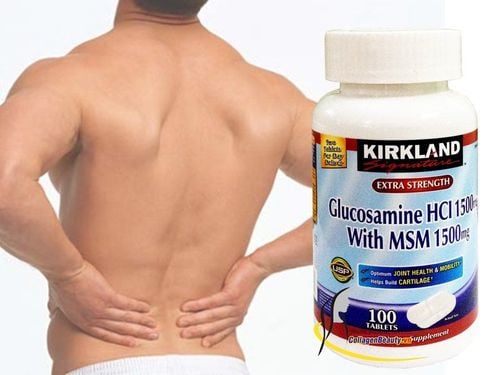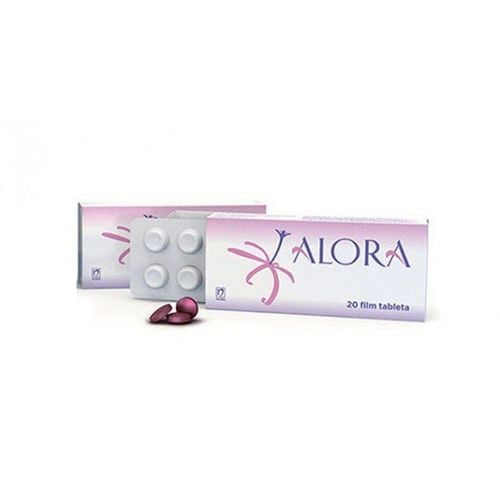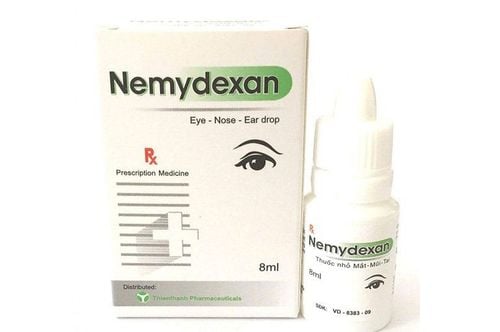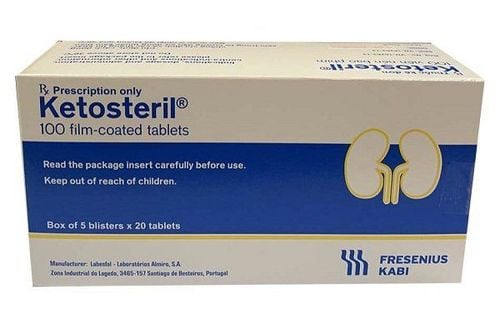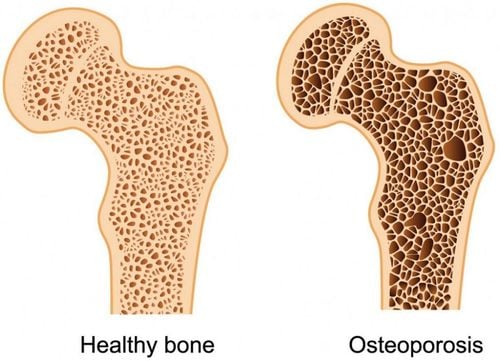This is an automatically translated article.
Betene is used by injection to treat conditions requiring corticosteroids. Below is all the information about the drug Betene that patients need to know to use the drug safely and properly to achieve the best effect.
1. What is Betane?
Betene belongs to the group of hormonal drugs - hormones, prepared in the form of an injectable solution, packing specifications: Box of 10 ampoules of 1ml.
Betamethasone ingredient in the drug is a synthetic corticosteroid, which has anti-inflammatory, rheumatic and allergic effects. The drug is used by injection to treat conditions requiring corticosteroids. Due to its low mineralocorticoid effect, betamethasone is well suited in pathological cases where fluid retention is detrimental. When used in high doses, Betamethasone has an immunosuppressive effect.
2. Indications for the use of Betane
Betene is indicated in the following conditions:
Hormonal disorders: Primary or secondary adrenal insufficiency; in shock unresponsive to conventional therapy if adrenal insufficiency is known or suspected; congenital adrenal hyperplasia; non-purulent thyroiditis; Hypercalcemia associated with cancer. Joint disease: The drug is indicated for short-term adjunctive therapy for post-traumatic osteoarthritis, synovitis, rheumatoid arthritis, bursitis, condylar prostatitis, tenosynovitis acute, gouty arthritis or psoriasis, ankylosing spondylitis. Collagen diseases: Betene is indicated during severe illness or maintenance therapy in people with systemic lupus erythematosus, acute rheumatoid arthritis. Skin diseases: Pemphigus, Stevens-Johnson syndrome; exfoliative dermatitis or herpes; seborrheic dermatitis and severe psoriasis; fungal infections. Allergies: Betene is helpful in the management of severe or non-treatable allergic conditions in patients with bronchial asthma, contact dermatitis, atopic dermatitis, allergic rhinitis, serum sickness, Hypersensitivity reactions to drugs, infusion-induced urticaria, noninfectious laryngeal edema. Eye diseases: Eye herpes, blepharitis, keratitis, keratitis, choroiditis, retinal choroiditis, optic neuritis, sympathetic ophthalmia, allergic conjunctivitis, corneal ulceration due to allergies response. Gastrointestinal diseases: Betenen is also indicated to help patients overcome the acute phase of ulcerative colitis or inflammation of the ileum. Respiratory disease: Disease with symptoms of sarcoid, beryllium toxicity, pulmonary tuberculosis, stridor pneumonia and Loeffler syndrome that cannot be controlled otherwise. Hematologic diseases: Treatment of autoimmune anemia, secondary thrombocytopenic purpura in adults, macrocytic anemia or congenital hypoplasia. Oncological diseases: Betene is used for the temporary treatment of leukemias and lymphomas in adults, acute leukemia in children. Edema: The drug has diuretic effect or reduces proteinuria in nephrotic syndrome without uremia, either spontaneously or due to lupus erythematosus. Other diseases such as tuberculous meningitis and helminthiasis involve the myocardium or nerves.
3. Dosage of Betane
Betene is only used by prescription of a doctor, the dose is very different depending on the level and response of the patient.
The usual dose for adults is calculated as follows:
Use intramuscularly and intravenously: Dose 2 - 12mg/time, every 3 - 4 hours depending on symptoms; Infusion dose of 2 - 20mg Betamethasone/time, 1-2 times/day, mixed in saline or glucose solution; Intra-articular injection: Use a dose of 0.4 - 6mg Betamethasone depending on the size of the joint. The above dosage of Betene is for reference only. The specific dose of Betene will depend on your condition and disease progression. Therefore, to have the right dose of Betene, patients need to consult a doctor.
4. Contraindications to the drug Betene
Betene is contraindicated in the following cases:
Patients with systemic fungal infections, infections or unstable joint areas; Patients with hypersensitivity to any of the active ingredients in Betenen;
5. Betene overdose and how to handle it
Betene overdose symptoms:
Keep sodium and water; Increased appetite; Increased calcium and phosphorus accompanied by osteoporosis, nitrogen loss; Increased blood sugar; Reduced tissue regeneration; Adrenal failure ; Increased activity of the adrenal cortex; Mental and neurological disorders; Muscle weakness. Treatment of drug overdose Betene:
In case of overdose Betene, the patient should be monitored serum electrolytes and urine; Balance sodium and potassium; If chronic intoxication occurs, Betane should be discontinued gradually. Treat symptoms of electrolyte imbalance if necessary.
6. Interactions with other drugs
Possible interactions if Betene is used concurrently with the following drugs:
Rifampicin, Rifabutin, Pheytoin, Primidone, Aminoglutethimide Carbamazepine, Phenobarbitone and Ephedrine may increase the metabolism of Corticosteroids and decrease the therapeutic effect of Betene; Side effects of hypoglycemic drugs, Carbenoxolone, blood pressure and diuretics Acetazolamide, Thiazide will increase if used concurrently with Betene; Concomitant use with Betene will increase the side effects of anticoagulant Coumarin; Renal clearance of salicylate is increased if co-administered with corticosteroids; Convulsions occur if high doses of corticosteroids and cyclosporine are taken together.
7. Side effects of the drug Betane
Betene may cause the following side effects:
Infection: Betene may cause a new infection or increase an existing infection; Endocrine: Menstrual disorders, acute and chronic adrenal insufficiency, growth retardation in children; Gastrointestinal: Peptic ulcer, diarrhea, pancreatitis, nausea/vomiting, stomach pain, bulimia; Nervous: Asthenia, hypermania, insomnia, headache, dizziness, convulsions; Musculoskeletal: Muscle and joint pain, osteoporosis, aseptic necrosis of the femoral head; Metabolic disorders: Facial edema, humpback, negative nitrogen balance; Water and Electrolyte Disorders: Hypertension, hypokalemia, sodium and water retention; Eyes: Increased intraocular pressure, glaucoma, protrusion, fungal or viral eye infections; Skin: Slow wound healing, thin skin, bleeding and bruising, red rash, increased sweating, hirsutism,...; Other side effects: Fatigue, fever, neurological diseases, heart failure, hypertension, unstable joints, tissue atrophy at the injection site. In case the patient experiences the above side effects, stop taking Betene immediately, consult the treating doctor or go to the nearest medical facility for timely treatment.
Above is information about uses, doses and precautions when using Betene. To ensure safety for your health and maximize the effectiveness of your treatment, you need to take Betene exactly as directed by your doctor.
Please dial HOTLINE for more information or register for an appointment HERE. Download MyVinmec app to make appointments faster and to manage your bookings easily.




